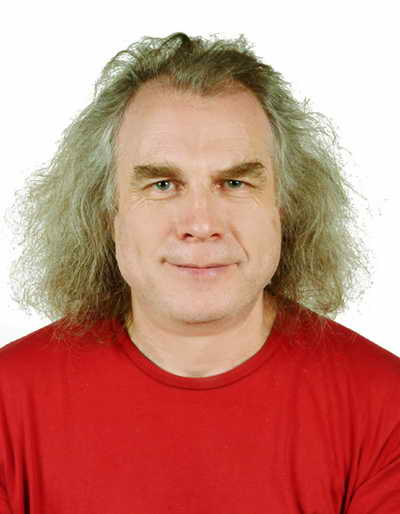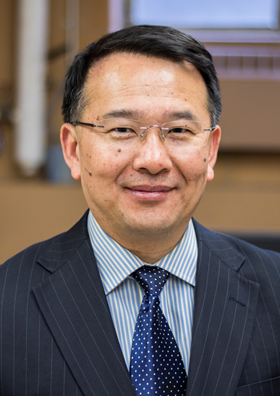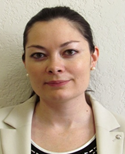Keynot Speakers

Prof. Yuyuan Zhao (University of Liverpool, UK)
Dr. Yuyuan Zhao graduated with a BEng in 1985 and MSc in 1988 from Dalian University of Technology, China, and a DPhil in Materials from Oxford University in 1996. He was a Lecturer at Dalian University of Technology from 1988 to 1991, a Research Associate at the MADYLAM Laboratory of CNRS, France in 1995, and a Research Fellow at Birmingham University from 1995 to 1998. Dr. Yuyuan Zhao joined Liverpool University in 1998 as a Lecturer and was promoted to Senior Lecturer in 2005, Reader in 2010 and Professor in 2015. Dr. Yuyuan Zhao pioneered the Sintering and Dissolution Process (SDP) for manufacturing aluminium foam, which inspired the subsequent developments of several powder-based space-holder methods for manufacturing metal foams. He further invented the Lost Carbonate Sintering (LCS) process, a more versatile and cost-effective method for producing micro-porous metals. The LCS technology has led to the creation of Versarien, a highly successful start-up company which mass produces micro-porous copper for thermal management applications. Dr. Yuyuan Zhao was awarded the Ivor Jenkins Medal in 2015 for an outstanding contribution to powder metallurgy in developing and commercialising innovative powder based technologies for manufacturing metal foams. Dr. Yuyuan Zhao current research is focused on the manufacture, characterisation and applications of porous metals and metal matrix syntactic foams.

Prof. Jesús Toribio (University of Salamanca, Spain)
Professor Jesus Toribio graduated in Civil Engineering
in 1982 and then in Mathematics in 1986. In 1987 he was
awarded his PhD in the Polytechnic University of Madrid
(UPM) and turned into Associate Professor in that
Institution. In 1992 he became Full Professor and Head
of the Materials Science Department of the University of
La Coruña (at the age of 32, thus being the youngest
Full Professor in the area of Materials Science in
Spain). In 2000 he moved to the University of Salamanca
(USAL) where is currently Full Professor of Materials
Science and Head of the Fracture and Structural
Integrity Research group (FSIRG) of that Institution.
His research work is mainly concerned with fatigue and
fracture mechanics, environmentally assisted cracking,
stress corrosion cracking and hydrogen embrittlement/degradation/damage
of metals and alloys (mainly cold drawn pearlitic steel
wires for civil engineering and austenitic stainless
steels for nuclear engineering and energy applications),
covering theoretical, computational and experimental
aspects. He actively participates in International
Conferences, very often being member of the
International Advisory Committee, organising Special
Sessions/Symposia, being Session Chairman or delivering
Plenary/Keynote/Invited Lectures. Professor Dr. Jesus
Toribio has published more than 500 scientific papers,
most of them in international books and journals.
He is the Chairman of the Technical Committee 10 (TC10):
Environmentally Assisted Cracking of the European
Structural Integrity Society (ESIS) and has been
Director (2013-2017) of the International Congress of
Fracture-The World Academy of Structural Integrity
(ICF-WASI), being responsible of launching the Ibero-American
Academy of Structural Integrity (IA2SI). Prof. Toribio
has been awarded a variety of scientific research prizes
and awards including: (i) UPM Young Scientist Award of
the Polytechnic University of Madrid; (ii) METROTEC
Award for the best Technological Research Project; (iii)
Honour Medal of the Spanish Group of Fracture (GEF/SEIE)
in recognition of his research achievements in the field
of fracture mechanics; (iv) Fellow of the Wessex
Institute of Technology (WIT) in recognition of
leadership and outstanding work in engineering sciences,
(v) Top Reviewer 2011 in recognition of an outstanding
contribution to the quality of the Elsevier
International Journal Engineering Fracture Mechanics,
(vi) Fellow of the European Structural Society (ESIS
Fellow) for his outstanding contributions to the art,
science, teaching or practice of fracture mechanics and
his service to the society; (vii) Honorary Member of the
Italian Group of Fracture (IGF) in acknowledgement and
appreciation of his outstanding achievements in the
research field of fracture mechanics.

Prof. Ian D. Walker, IEEE Fellow (Clemson University, USA)
Ian Walker received the B.Sc. in Mathematics from the University of Hull, England, in 1983 and the M.S. and Ph.D. in Electrical and Computer Engineering from the University of Texas at Austin in 1985 and 1989. Professor Walker is a Fellow of the IEEE and a Senior Member of the AIAA. He has served as Vice President for Financial Activities for the IEEE Robotics and Automation Society, and as Chair of the AIAA Technical Committee on Space Automation and Robotics. He has also served on the Editorial Boards of the IEEE Transactions on Robotics, the IEEE Transactions on Robotics and Automation, the International Journal of Robotics and Automation, the IEEE Robotics and Automation Magazine, and the International Journal of Environmentally Conscious Design and Manufacturing. His research has been funded by DARPA, the National Science Foundation, NASA, NASA/EPSCoR, NSF/EPSCoR, the Office of Naval Research, the U.S. Department of Energy, South Carolina Commission of Higher Education, Sandia National Laboratories, and Westinghouse Hanford Company. He is a Professor in the Department of Electrical and Computer Engineering at Clemson University. Professor Walker's research focuses on research in the construction, modeling, and application of continuum robots.
Speech Title: Continuum Robots for
Healthcare Applications
Abstract: This Keynote talk will
provide an overview of research in biologically inspired
continuous backbone "trunk and tentacle" continuum
robots. Continuum robots are an emerging form of robot
structure, featuring smooth backbones. These structures
can be formed using a variety of materials and actuation
techniques. Often inspired by structures in biology
including the trunks of elephants and the arms of
octopuses, these robots are inherently compliant. This
allows them to adapt to their environments and to
penetrate congested spaces where traditional robots
cannot. However, their modeling, sensing, and control
present novel, interesting, and significant challenges.
In the talk, continuum robots inspired by octopus arms
and plants (vines) will be discussed. Use of these
robots for novel healthcare applications, targeted
towards aging in place technologies and surgical
procedures, will be discussed.
Invited Speaker

Prof. Sujan Debnath (Curtin University, Malaysia)
Dr. Sujan (CEng MIMechE) Joined Curtin University,
Sarawak Malaysia in October 2008 after completion of two
years tenure in Multimedia University, Malaysia. Since
2014, he has been appointed as the Head of Mechanical
Engineering, Curtin Sarawak. Dr. Sujan obtained his PhD
Degree from the University of Science Malaysia in 2006
majoring applied mechanics with specific research
focuses on interfacial thermal mismatch stress analysis
in layered structure.
Over the years, he has been working in the area of
thermo-mechanical stress analysis, green composite
materials, and polymer composite materials.He has more
than 65 publications in reputable international journals
and conference proceedings.
At present, Dr. Sujan is supervising four PhD and three
MPhil students. Dr. Sujan is a Chartered Engineer and
member of the Institute of Mechanical Engineers, UK.
ICDMM 2019 Speakers

Prof. Jesus Toribio
University of Salamanca, Spain

Prof. Sergei Alexandrov
Beihang University, China

Prof. Daolun Chen
Ryerson University, Canada

Assoc. Prof. Marina Rynkovskaya
RUDN University, Russia